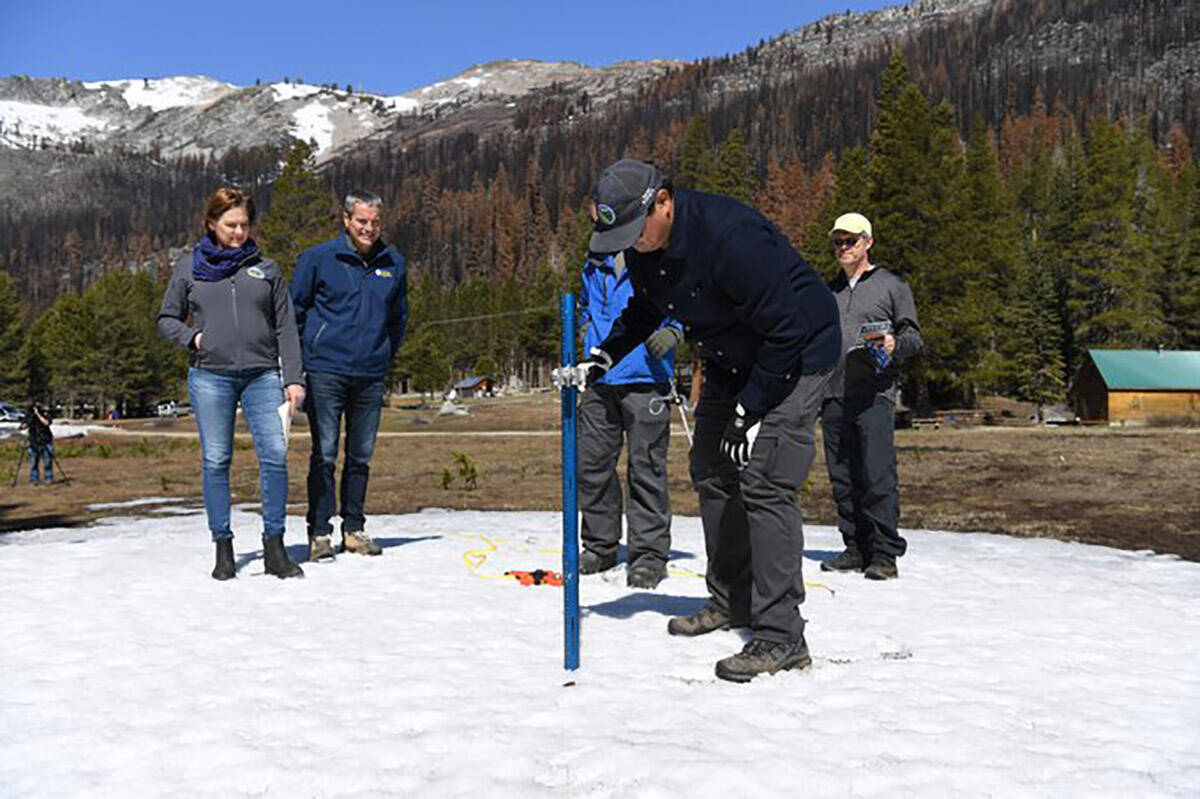California drought obvious at critical April 1 snowpack measurement
It’s not the worst the state has ever seen, but the California snowpack is devastatingly low.
The snowpack — which provides a third of the state’s water supply — is 38% of average statewide.
A dry scene at @CA_DWR's critical April snowpack measurement today, a bleak indicator of the deepening drought and water supplies for the warm months ahead. The water packed into the snow was 4% of average at the spot south of Lake Tahoe, 38% statewide. https://t.co/ORY8cTCaMQ pic.twitter.com/EHihDe3Aiq
— @RA_Becks (@RA_Becks) April 1, 2022
At Phillips Station south of Lake Tahoe, state engineers on Friday found a shrinking patch of snow that contained only 4% of the location’s average water content, according to California Matters.
After two years of drought, California got off to a good start with heavy precipitation in October and December. Then, January and February were historically dry, leaving the state’s snowpack well below normal.
The deepening drought is obvious.
Worse than last year, worse even than last month, this year’s snowpack is the worst it’s been in seven years and the sixth lowest April measurement in state history.
Unfortunately the new snow pack numbers are not an April fools joke. @CA_DWR measured only 4% of average for the Phillips Station today with the state wide percent of average at 38%. #CAwx #SnowSurvey pic.twitter.com/caNMR7GU9p
— NWS Sacramento (@NWSSacramento) April 1, 2022
The amount of snow in April is considered critical because it indicates how much water will be available through the summer. The snow, historically at its deepest in April, melts and flows into rivers, streams and reservoirs.
It’s not as bad as the last drought, however: The snowpack contains about eight times more water than in 2015.
Sean de Guzman, manager of the state’s snow surveys and water supply forecasting section, held his hand at roughly shoulder height on a survey instrument. “On an average year, our feet should be right here where my hand is,” he said.
“Today is actually very evocative of 2015 (when the snowpack was measured as the lowest in history),” said Karla Nemeth, director of the California Department of Water Resources, against a backdrop of brown grass at Phillips Station.
“You need no more evidence than standing here on this very dry landscape to understand some of the challenges we’re facing here in California,” Nemeth said.
Contact Marvin Clemons at mclemons@reviewjournal.com. Follow @Marv_in_Vegas on Twitter. The Associated Press contributed to this report.























